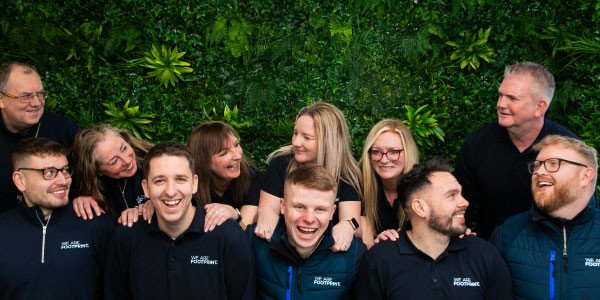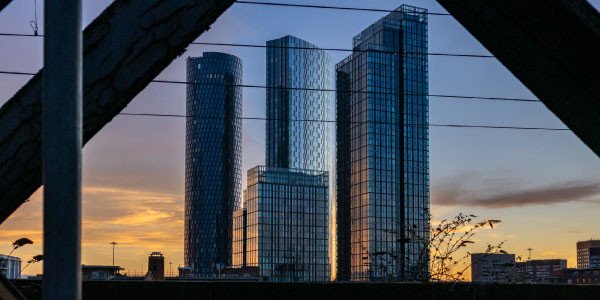Having a job interview can be a life-changing experience that gives you an opportunity to shape your future .
If you’re feeling nervous or unsure about how to prepare, you’re not alone. Many people -especially those returning to work after time away - feel anxious about interviews. But with the right approach, you can walk in with confidence and give yourself the best possible chance of success.
This guide is here to help you prepare, perform well in your interview, and show an employer why you’re the right person for the job.
Step one is to get to know the job and the company. Before your interview, take time to research. Find out what they do, what their values are and even whether they have been in the news lately. Find out as much as you can about the role and the skills and experience they are looking for. If you know the interviewer’s name, you could even try and find them on LinkedIn as you might find something you have in common – maybe a shared interest which could help you feel more comfortable.
Researching the company shows your enthusiasm and helps you answer questions with confidence. It also makes it easier to explain why you’re a great fit for the company.
Remember that your CV gives them their first impression of you so keep it clear and easy to read. Start with a personal statement - a short paragraph explaining who you are, your skills, and what you bring to the job. Then list your most relevant experience first including any qualifications or relevant training you have had. You can also add some hobbies that show your transferable skill, for example teamwork from playing sports, or problem-solving from previous projects.
If you’ve had a career break, just be honest and focus on what you’ve learned or any relevant experience you’ve gained in that time.
Prepare yourself that in an interview you are going to be asked questions. There’s no way to know exactly what an interviewer will ask, but certain questions come up often so it’s worth thinking your answers through. Practice answering questions like:
- Tell me about yourself? Give a short summary of your skills and experience.
- Why do you want this job? Tell the interviewer what excites you about the role or company and why the job is important to you.
- What are your strengths and weaknesses? It’s perfectly reasonable to tell the interviewer what you think you’re good at and what you think you’re less good at. Be honest and show how you try to improve.
- Can you give an example of a time you worked well in a team?
- Describe a time you solved a problem at work.
If you’re not sure how to answer the last two experience-based questions you could try the STAR method: S for Situation - describe the problem or challenge? T for Task - what needed to be done? A for Action - what did you do? R for Result - what was the outcome?
Remember that potential employers don’t just look at the skills you bring to the role, they also want to see enthusiasm and commitment - people who will turn up, work hard, and be part of the team. So show that you understand the importance of reliability - construction is a team effort.
If you’re asked about flexible working, don’t start by asking how many days you can work from home as clearly, in construction, being on-site is often essential. Instead, show commitment by asking about career development or opportunities to learn new skills.
You may also be asked about your pay expectations so research the typical salary for that role. If you know what the salary or pay range should be, you’ve got a better idea of what’s fair, so you’re less likely to undersell yourself or expect more than is reasonable.
At the end of the interview, you’ll probably be asked if you have any questions for the interviewer. Always say yes because it’s another opportunity for you to show interest in the job and find out more about it. Good questions to ask include:
- How do you measure success in this role?
- What are the biggest challenges in this position?
- What training or career development opportunities do you offer?
- What do you enjoy most about working here?
Questions like these show that you’re thinking about your future in the company, rather than just getting the job.
When it comes to the interview day itself a few simple steps can help to calm your nerves and help the day go smoothly. Plan your journey - if it’s an in-person interview, check your route beforehand and aim to arrive 10-15 minutes early. Choose and prepare your outfit in advance as dressing smartly shows professionalism. Bring copies of your CV because it’s helpful if the interviewer doesn’t have one in front of them. Practice answering questions out loud at home and speaking clearly so that you feel less nervous and sound more natural.
Remember, an interview isn’t just about what you say, it’s also about how you present yourself so when you walk in smile and make eye contact, offer a firm handshake, sit up straight, listen carefully, and take a moment before answering questions if you need to.
Afterwards, you could send a short email thanking the interviewer for their time and even mention something specific from your conversation to show you were listening and engaged. It’s a small point but it creates a good final impression.
And remember, you’ve got an interview because the company thinks you have potential. You don’t need to be perfect, you need to show that you’re reliable and willing to work hard, you have relevant skills or a desire to learn, and you’d be a great addition to their team.
If you need more advice or help finding the right job in the construction industry, We Are Footprint are always here to support you.



